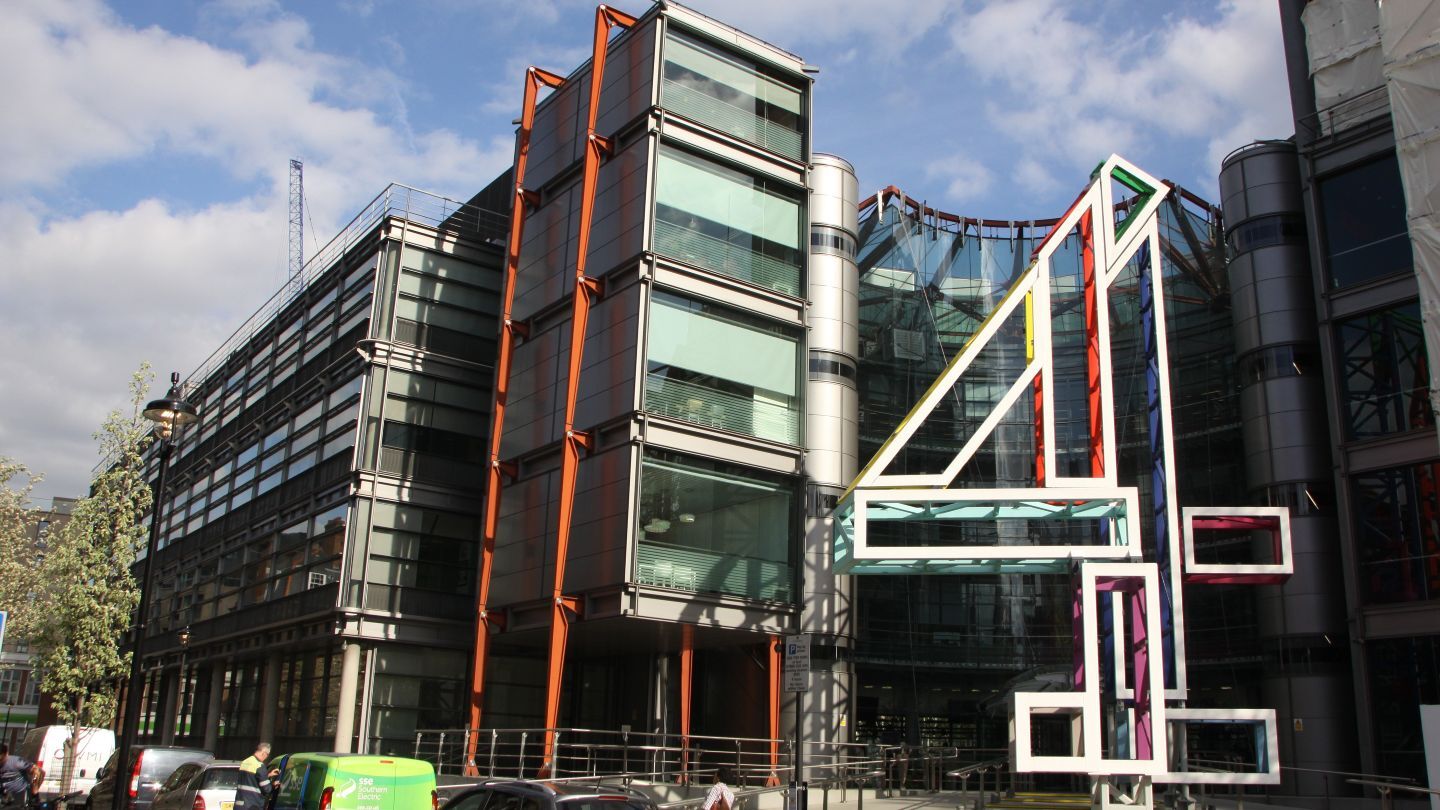Four finalists who are making a difference in society have been selected for the IBC2023 Social Impact Award.
As much a part of IBC as the exhibition, the IBC2023 Social Impact Awards recognise an initiative or campaign which is making a positive impact, socially, ethically or environmentally, in the wider world. They celebrate the industry’s willingness to engage with today’s big issues, like sustainability, diversity and wellbeing.

The Social Impact Awards were first introduced in 2019 and this year they are a part of IBC’s Changemakers programme on Sunday 17th September, which focuses on initiatives aimed at making the industry more equitable, inclusive, accessible and green.
There are three Award categories, which include the Award for Social Impact. This year, the contenders in this category included a wide variety of projects, from all over the world, ranging from platforms that feature informative and inspirational content to technology-based solutions for tackling major social and political issues.
The four finalists are Afghanistan International Radio, RTVE’s AI-based solution to election coverage, Stellenbosch University and Intelsat using satellite technology in education and the BBC’s Human Values project.
Afghanistan International Radio: Focusing on the plight of Afghan women
Afghanistan International Radio is a platform that has amplified the voices of Afghan women, sharing their stories globally and reminding audiences of what they are experiencing.
AI Radio, launched on August 16, 2021 and became a vital news source for Afghans amidst the Taliban’s return to power and the subsequent shutdown of independent media.
Focusing on the plight of Afghan women, AI Radio highlights the Taliban’s rollbacks of social and political reforms, including a nationwide house arrest for women and girls. Under these restrictions, women are barred from working, and girls are denied education, physical activity and exposure to the outside world.
Reporters for the service, which is based in London, are no longer allowed in Afghanistan. But they have overcome this challenge by using an extensive network of contacts in the country among former journalists, NGOs and former government employees and civil servants. The station also uses authenticated User Generated Content.
Audiences continue to grow and the station has received positive feedback, including from listeners in Afghanistan.
RTVE: Boosting news accessibility with AI synthetic voices
RTVE used AI to provide local election news coverage of nearly 5,000 small Spanish municipalities.
When the local elections were held in Spain on 28 May 2023, Spanish public service broadcaster RTVE tested artificial intelligence to generate written and audio content, in real time and automatically, providing news coverage of the thousands of municipalities in Spain with less than 1,000 inhabitants.
The aim for RTVE, as a public service, was to guarantee that no-one was left without access to information about elections that underpin the democratic politics of the country.
With close supervision and careful control of sources of information, artificial intelligence was present in the reading of data, the writing of text, the news structure, the generation of images and the creation of synthetic voices.
The generation of synthetic voices made the news content accessible to people with disabilities. The ONCE (Spanish Organisation for the Blind) has participated and advised the project.
Two synthetic voices have been created for the narration of news to be heard online and in Alexa, one male and one female, as well as a third female voice for dialogue in the RTVE Elecciones Artificial Intelligence voice application of Amazon’s Alexa virtual assistant. These voices are unique and personalised in style and timbre as they are, thanks to generative AI, a mixture of people’s voices and their characteristics.
Stellenbosch University and Intelsat: Quality teaching via remote learning
Stellenbosch University and Intelsat are leveraging satellite technology to expand the reach and richness of higher education.
Stellenbosch University, a leading educational institution in South Africa, is delivering high quality educational content to high school students and vulnerable communities in South Africa and beyond. The main idea behind the project is to provide pupils with the best-quality teaching, which speaks to the vision of The Western Cape Education Department (WCED): quality teaching to every learner in every classroom in every school.
The Telematic Schools Project has evolved into a comprehensive online and real-time resource via which live lessons are broadcast. Students have access to lessons without a data cost.
The university’s telematic platform has a fully equipped broadcast studio uplink and uses Intelsat’s high performing satellite Intelsat 17 (IS-17) combined with web, mobile and videoconferencing technology. The on-campus studio broadcasts to 16 remote-learning centres situated across Southern Africa, and livestreams across the world.
The encoded signal is transmitted from the Stellenbosch campus via IS-17 at 66.0°E which has a footprint that covers most of the African continent.
The project started as a pilot in 10 schools with five subjects and grew to 1,300 satellite schools with 15 subjects in both English and Afrikaans as languages of instruction.
BBC Research & Development: Prioritising audience wellbeing and human values
BBC Research & Development’s Human Values project provides tools to understand how content affects the wellbeing and values of the user, rather than maximising demands on their time and attention.
Grounded in behavioural science, Human Values is a practical framework of 14 universal needs (such as Achieving Goals, Connecting with Others) expressed as design resources for ethical digital production, and a customisable toolkit of evidenced psychometric questions; language that providers can use in audience surveys and as wellbeing-centred objectives for their services.
Human Values, first released in 2019, began as the work of a single research scientist—BBC R&D’s Lianne Kerlin. During 2022, the Human Values team progressed from working directly as consultants helping colleagues apply the framework to the services they produce, to launching enablers so that these producers can work with values independently.
One of the new Human Values tools created this year has been Survey Builder, which is an interactive web application allowing producers to easily and interactively create a customised psychometric survey for their content or service.
Recently highlights of the team’s industry engagement and external collaboration have included working closely with the influential Center for Humane Technology in California, to embed Human Values into their learning resources, working with Nesta (the UK’s innovation agency for social good) and forming the basis of a white paper from the Center for Human-Compatible AI.
The IBC2023 Social Impact Awards
Ade Rawcliffe, Group Director of Diversity and Inclusion at ITV, is Chair of the Social Impact Awards Jury. “The quality of the finalists from around the globe illustrates just how important making a social impact is to an increasing number of businesses and creative companies,” she says. “It has rightly become embedded into the strategy of many companies on a level with any other KPI.”
You are not signed in
Only registered users can comment on this article.

SMPTE, EBU, and ETC research AI’s impact on the media
The Society of Motion Picture and Television Engineers (SMPTE) has teamed up with the European Broadcasting Union (EBU) and the Entertainment Technology Center (ETC) on a new engineering report on artificial intelligence (AI) and its effect on media.

UK film and TV industry backs clean power plan
The UK film and TV industry has agreed on a plan to permanently shift to clean solutions for temporary power on sets.

Nigel Warner to succeed John McVay as CEO of Pact
UK producers' body Pact has named Nigel Warner, UK Policy Consultant to the Motion Picture Association and Special Counsel at Lexington, as its next CEO.

Sky’s Priya Dogra to become Chief Executive of Channel 4
Priya Dogra will become the next Chief Executive of Channel 4. Currently Chief Advertising, Group Data, and New Revenue Officer at Sky, Dogra will succeed interim Jonathan Allan in March 2026.

One Battle After Another, The White Lotus, and Adolescence lead Golden Globe nominees
One Battle After Another, The White Lotus, and Adolescence have emerged as the frontrunning films and TV shows for the 2026 Golden Globes.



.jpg)
.jpg)